5 Modern Python Tools Every Developer Should Master in 2025
Master 5 modern Python tools that will boost your productivity and efficiency in 2025.

STAY AHEAD WITH THESE GAME-CHANGING PYTHON TOOLS!
5 Modern Python Tools Every Developer Should Master in 2025
The Python ecosystem keeps evolving, and new tools introduced to make development faster, cleaner, and more efficient. If you’re still relying on outdated workflows, it’s time to upgrade your toolkit!
Here are 5 more cutting-edge Python tools that will boost your productivity in 2025!
1. Supabase-Py — The Firebase Alternative for Python
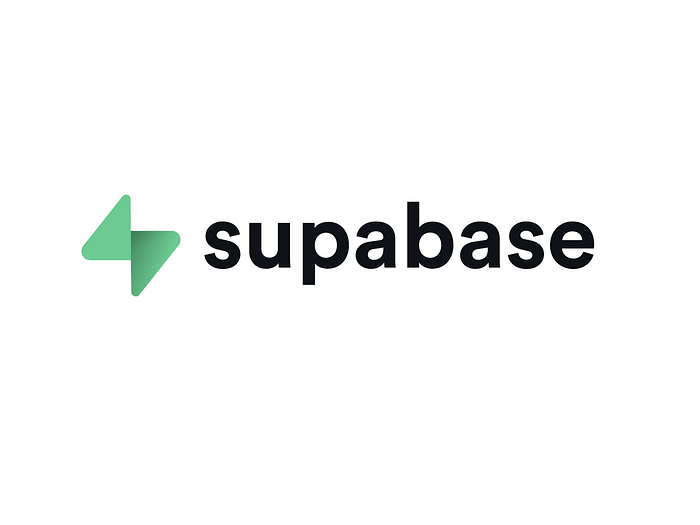
Supabase is a best alternative of Firebase provides a seamless way to interact with PostgreSQL database, authentication system, and storage services using Python.
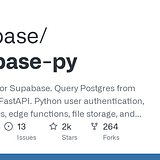
Installation:
pip install supabaseExample:
Setup a Supabase client:
import os
from supabase import create_client, Client
url: str = os.environ.get("SUPABASE_URL") # Add SUPABASE_URL in .env file
key: str = os.environ.get("SUPABASE_KEY") # Add SUPABASE_KEY in .env file
supabase: Client = create_client(url, key)Use the supabase client to interface with your database.
Sign-up
user = supabase.auth.sign_up({ "email": users_email, "password": users_password })Sign-in
user = supabase.auth.sign_in_with_password({ "email": users_email, "password": users_password })Insert Data
data = supabase.table("countries").insert({"name":"Germany"}).execute()
# Assert we pulled real data.
assert len(data.data) > 02. Modin — Pandas on Steroids
Modin is a drop-in replacement for pandas that scales across all CPU cores.
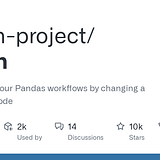
Installation:
pip install "modin[all]" # (Recommended) Install Modin with Ray and Dask engines.Example:
import modin.pandas as pd
df = pd.read_csv("large_file.csv") # Much faster than pandas!3. CuPy — GPU-Powered NumPy & SciPy
CuPy accelerates NumPy and SciPy operations using NVIDIA GPUs.
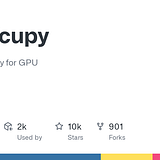
Installation:
pip install cupyExample:
import cupy as cp
arr = cp.array([1, 2, 3, 4])
print(arr**2) # Computed on GPU!4. Promptify — OpenAI-Like AI Prompt Engineering
A powerful LLM orchestration framework like LangChain.
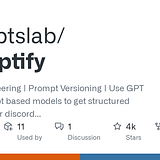
Installation:
pip install promptifyExample:
from promptify import Prompter,OpenAI, Pipeline
sentence = """The patient is a 93-year-old female with a medical
history of chronic right hip pain, osteoporosis,
hypertension, depression, and chronic atrial
fibrillation admitted for evaluation and management
of severe nausea and vomiting and urinary tract
infection"""
model = OpenAI(api_key) # or `HubModel()` for Huggingface-based inference or 'Azure' etc
prompter = Prompter('ner.jinja') # select a template or provide custom template
pipe = Pipeline(prompter , model)
result = pipe.fit(sentence, domain="medical", labels=None)
### Output
[
{"E": "93-year-old", "T": "Age"},
{"E": "chronic right hip pain", "T": "Medical Condition"},
{"E": "osteoporosis", "T": "Medical Condition"},
{"E": "hypertension", "T": "Medical Condition"},
{"E": "depression", "T": "Medical Condition"},
{"E": "chronic atrial fibrillation", "T": "Medical Condition"},
{"E": "severe nausea and vomiting", "T": "Symptom"},
{"E": "urinary tract infection", "T": "Medical Condition"},
{"Branch": "Internal Medicine", "Group": "Geriatrics"},
]5. SQLModel — The Best Way to Work with SQL in Python
Combines SQLAlchemy + Pydantic for a seamless ORM experience. SQL databases in Python, designed for simplicity, compatibility, and robustness.
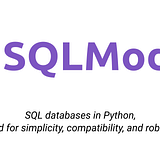
Installation:
pip install sqlmodelExample:
from typing import Optional
from sqlmodel import Field, Session, SQLModel, create_engine
class Hero(SQLModel, table=True):
id: Optional[int] = Field(default=None, primary_key=True)
name: str
secret_name: str
age: Optional[int] = None
hero_1 = Hero(name="Deadpond", secret_name="Dive Wilson")
hero_2 = Hero(name="Spider-Boy", secret_name="Pedro Parqueador")
hero_3 = Hero(name="Rusty-Man", secret_name="Tommy Sharp", age=48)
engine = create_engine("sqlite:///database.db")
SQLModel.metadata.create_all(engine)
with Session(engine) as session:
session.add(hero_1)
session.add(hero_2)
session.add(hero_3)
session.commit()Final Thoughts
These 5 modern Python tools will help you build faster, smarter, and more scalable applications in 2025.
Which library are you most excited to try? Let me know in the comments!



